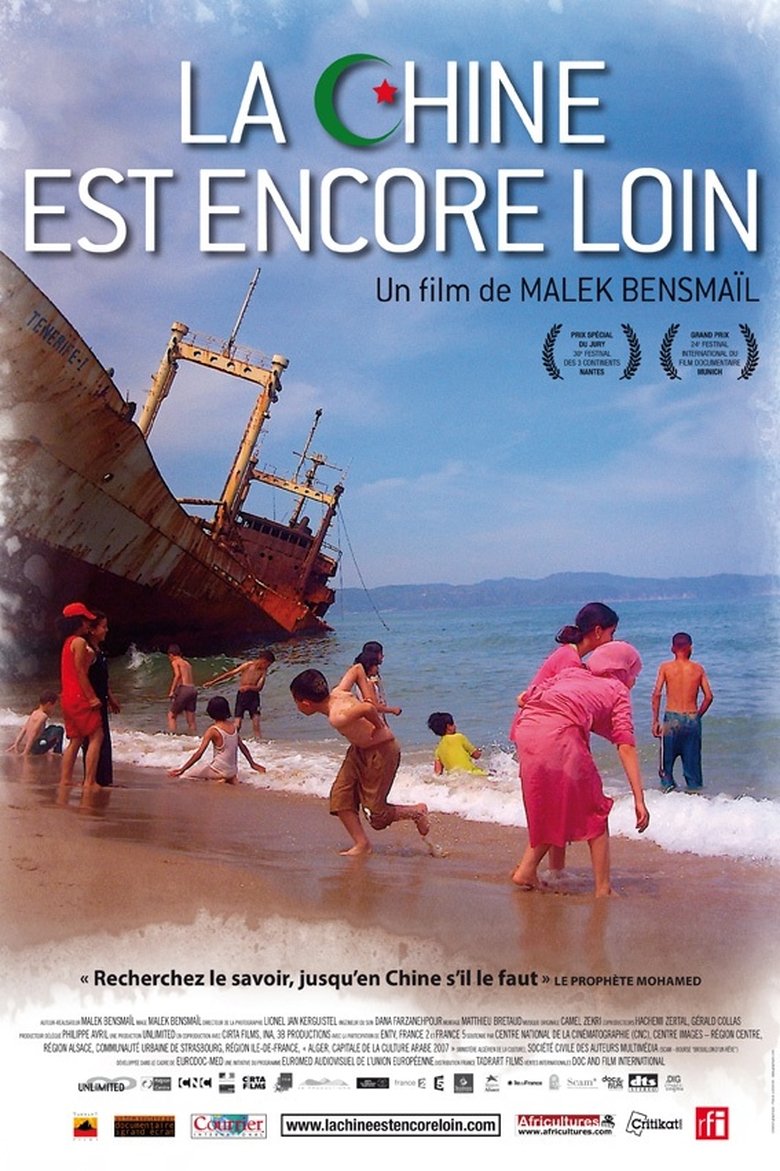
La Chine Est Encore Loin
2010
2h 0m
On November 1, 1954, near Ghassira, a small village lost in the Aurès, a couple of French teachers and an Algerian boss were the first civilian victims of a seven-year war which would lead to the independence of Algeria. More than fifty years later, Malek Bensmaïl returns to this Chaoui village, which has become “the cradle of the Algerian revolution”, to film, throughout the seasons, its inhabitants, its school and its children.
If current server doesn't work please try other servers beside.
Similar Movies

A Propos D'Un Crime
In 1967, Visconti came to Algiers for the filming of The Stranger with Mastroianni and Anna Karina. Camus, during his lifetime, had always refused to allow one of his novels to be brought to the screen. His family made another decision. The filming of the film was experienced in Algiers, like a posthumous return of the writer to Algiers. During filming, a young filmmaker specializing in documentaries Gérard Patris attempts a report on the impact of the filming of The Stranger on the Algerians. Interspersed with sequences from the shooting of Visconti's film, he films Poncet, Maisonseul, Bénisti and Sénac, friends of Camus, in full discussions to situate Camus and his work in a sociological and historical context. “The idea is for us to show people, others, ourselves as if they could all be Meursault, or at least the witnesses concerned to his drama.”
Rating:
10.0/10
Votes:
1
Year:
1967

Paroles d'un Prisonnier Français de l'ALN
The image of French prisoners was very often evoked in Algerian cinema and literature, but until today, no Algerian or even European report or documentary had given voice to one of these French prisoners of the war of Algeria. In the interest of truth and writing history, we set out in search of one of these French witnesses. This witness is René Rouby, prisoner of Amirouche's group for more than 114 days in 1958 in the Akfadou region in Kabylia. This is the first testimony from a French prisoner of the ALN (the National Liberation Army).
Rating:
10.0/10
Votes:
1
Year:
2010
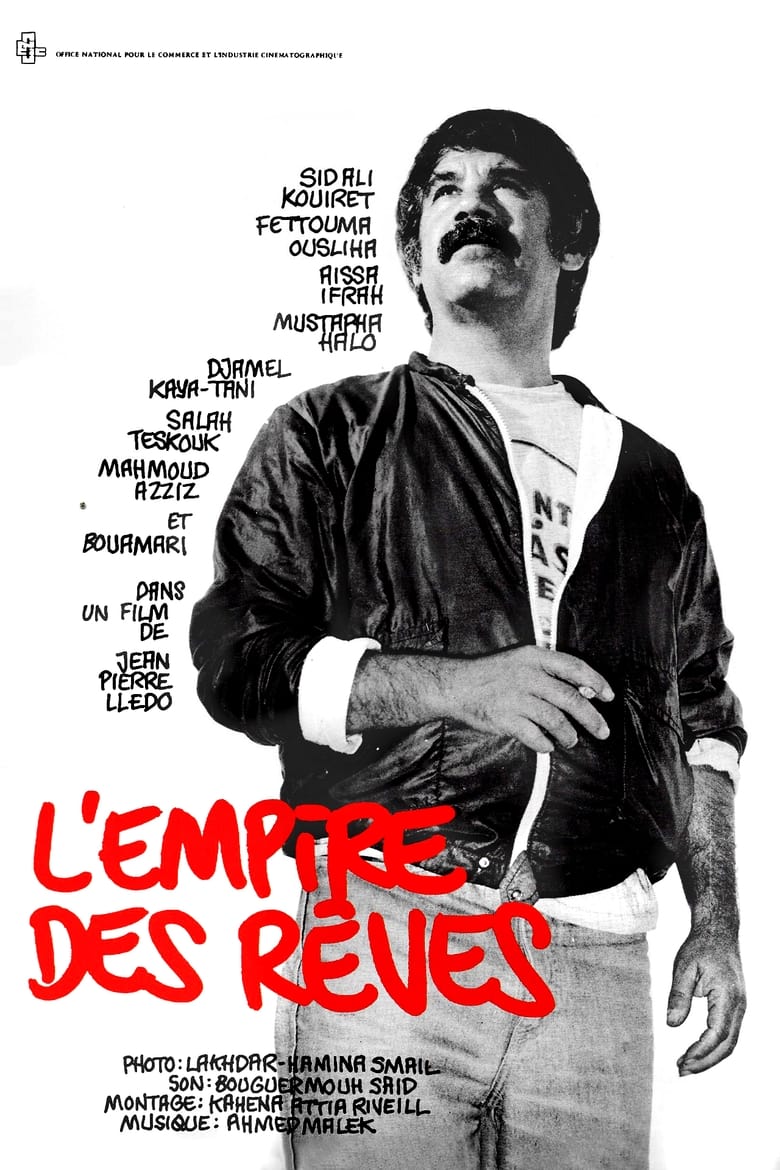
أحلام (Ahlam)
A stubborn director who wants to rediscover the Algiers of his childhood comes up against the “Hollywood” fantasies of his characters, non-professionals all hoping to be able to become “someone else”, at least for the duration of a film… Mise en abyme for a journey into megalomania…
Rating:
10.0/10
Votes:
1
Year:
1982
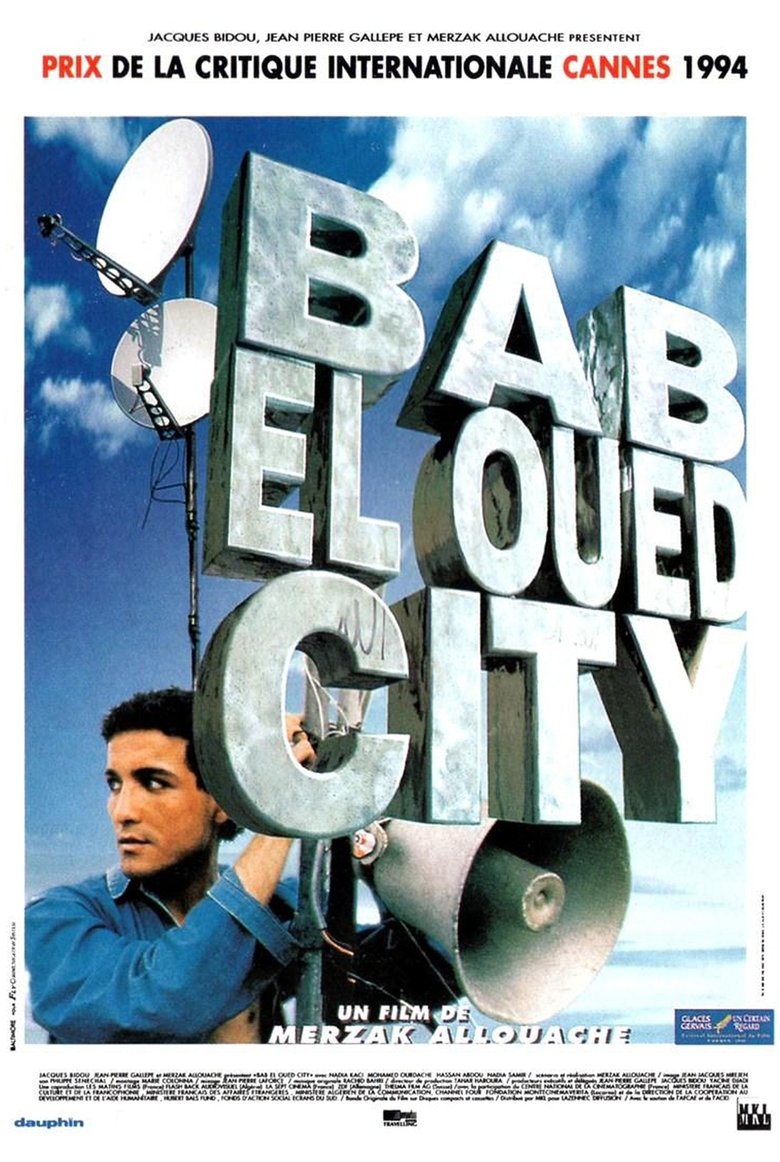
Bab El Oued City
Bab El-Oued, a popular district of Algiers, in 1989, a few months after the riots. Boualem works at night in a bakery and steals the loudspeaker that was installed on his roof and was broadcasting the Imam's word... therefore preventing him from sleeping. This blunder is taken as a pretext by the Islamists to put the district under their control...
Rating:
5.9/10
Votes:
8
Year:
1994
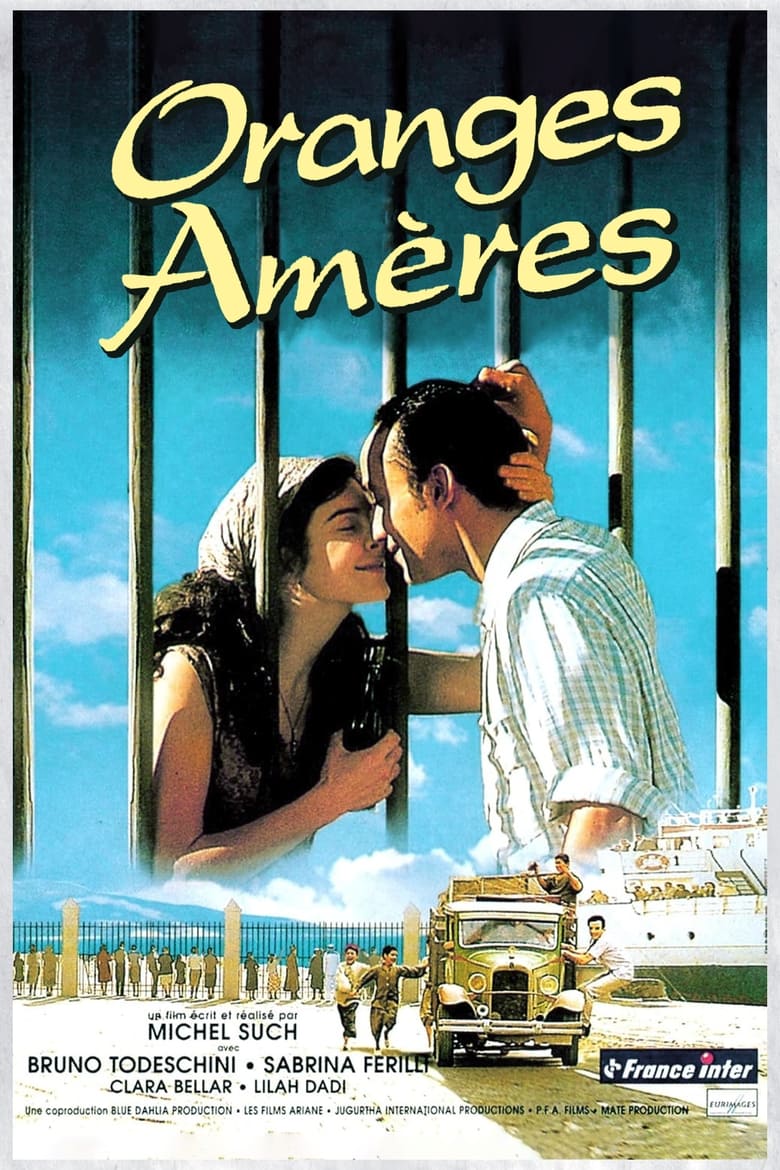
Oranges Amères
Recognizing no boundaries to her love, Angele manages to foment riots, rages and tragedy in colonial Algeria. Angele, an Algerian colonist with impeccably French origins, has fallen in love with Said, the assistant in her brother-in-law's bakery shop. Said is conscious of his Arab origins and traditions, and Angele has her work cut out for her if she wants to persuade him to marry her. Once she does, all hell breaks loose, as neither her European-origin peers nor Said's conservative Arab family approve of the union. When word of the proposed marriage gets out, strikes, violence and murder quickly follow, ruining not only Angele's life, but the lives of those around her. Her brother-in-law Paco, meanwhile, has been doggedly trying to get along and raise his family in an increasingly chaotic and difficult situation.
Rating:
6.0/10
Votes:
1
Year:
1997

Loubia Hamra
On an Algerian beach, kids splash about, sleep, squabble - and then suddenly go to war. And it’s neither Lord of the Flies nor La Guerre des boutons. In her first film, full of grace, Narimane Mari films this childish freefor- all closely, at the irregular pace of an imagination inspired by the highest form of reality, national History — actually, nothing less than the Algerian War of Independence. When their make-believe induces a general upheaval, we follow the flock of children as they stamp their feet up the stairs, invade houses, cross village squares, in a whirlwind of shouts and empty words. Time is stretched like in a dream, through a choreography of belligerent shadows or the night-time explosion of the cemetery, as so many warning signs of dangers to come.
Rating:
5.6/10
Votes:
8
Year:
2013

La Bataille d'Alger, l'empreinte
Cheikh Djemaï looks back on the genesis of Gillo Pontecorvo’s feature film, The Battle of Algiers (1965). Through archive images, extracts from the film and interviews with personalities, the filmmaker retraces the journey of a major work - from the events of the Algiers Casbah (1956-1957) to the presentation of the Lion of 'Or causing the anger of the French delegation in Venice - which left its mark as much in the history of cinema as in that of Algeria.
Rating:
10.0/10
Votes:
1
Year:
2018

Die weiße Gefahr
Rating:
10.0/10
Votes:
1
Year:
1971

Frantz Fanon, trajectoire d'un révolté
Frantz Fanon alone embodies all the issues of French colonial history. Martinican resistance fighter, he enlisted, like millions of colonial soldiers, in the Free Army out of loyalty to France and the idea of freedom that it embodies for him. A writer, he participated in the bubbling life of Saint-Germain with Césaire, Senghor and Sartre, debating tirelessly on the destiny of colonized peoples. As a doctor, he revolutionized the practice of psychiatry, seeking in the relations of domination of colonial societies the foundations of the pathologies of his patients in Blida. Activist, he brings together through his action and his history of him, the anger of peoples crushed by centuries of colonial oppression. But beyond this exceptional journey which makes sensitive the permanence of French colonialism in the Lesser Antilles at the gates of the Algerian desert, he leaves an incomparable body of work which has made him today one of the most studied French authors across the Atlantic.
Rating:
10.0/10
Votes:
1
Year:
2021

Many Beautiful Things
In an age when women were incapable of joining the artistic dialogue, Lilias Trotter managed to win the favour of celebrated critics.
Rating:
6.0/10
Votes:
1
Year:
2015
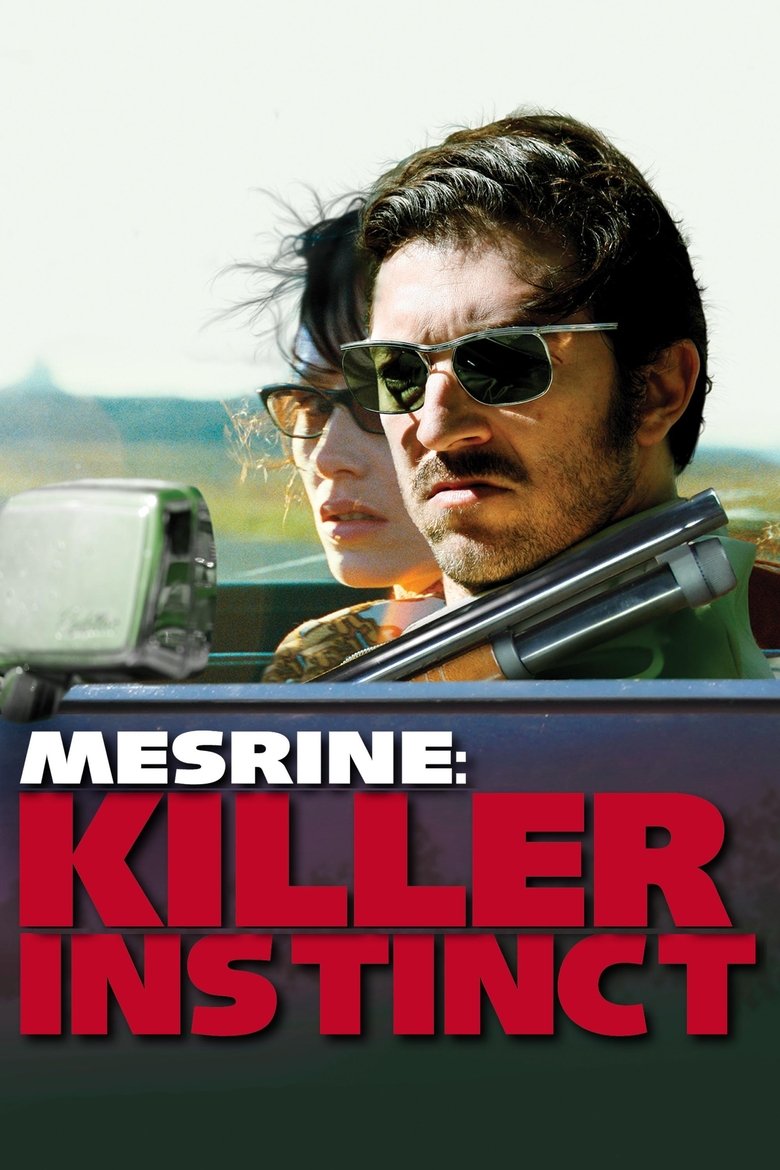
L'Instinct de mort
Jacques Mesrine, a loyal son and dedicated soldier, is back home and living with his parents after serving in the Algerian War. Soon he is seduced by the neon glamour of sixties Paris and the easy money it presents. Mentored by Guido, Mesrine turns his back on middle class law-abiding and soon moves swiftly up the criminal ladder.
Rating:
7.3/10
Votes:
922
Year:
2008
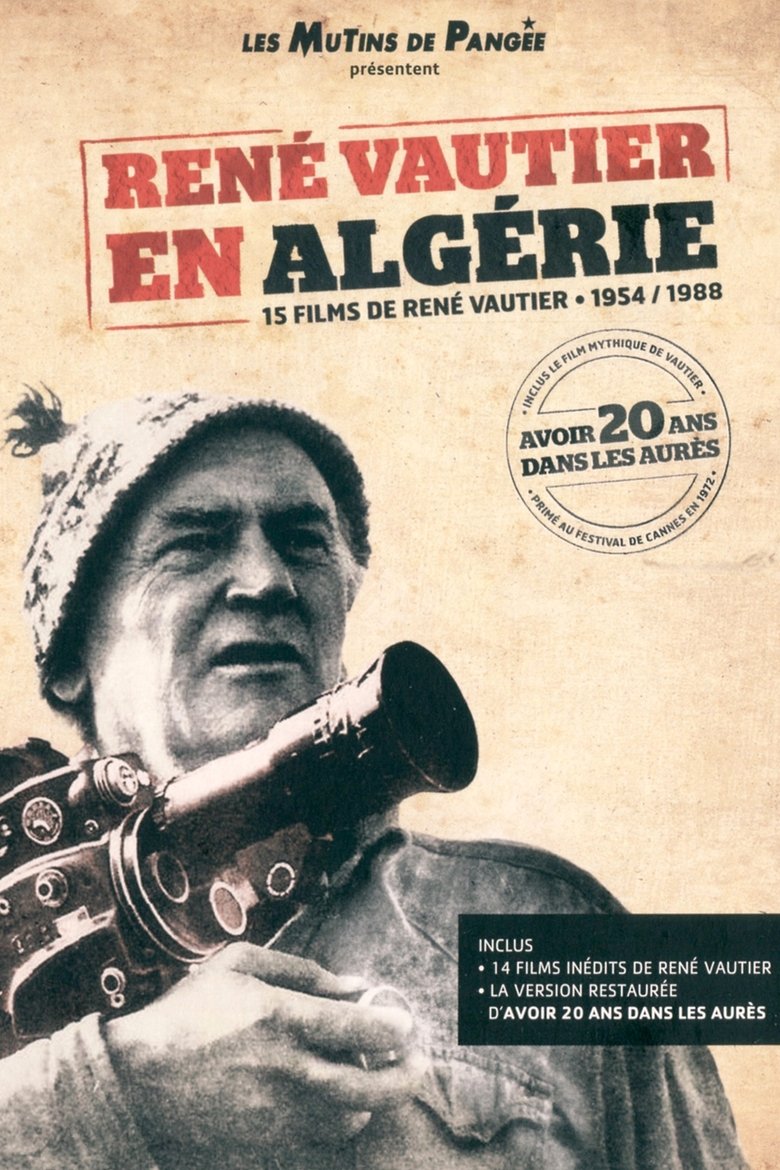
Déjà le sang de mai ensemençait novembre
The essay by René Vautier, "Déjà le sang de Mai ensemençait Novembre", starts with the recapitulation of the representations of Algeria throughout the history of visual arts in France in an effort to explore the causes for the quest for independence.
Rating:
9.0/10
Votes:
2
Year:
1982

L'Ennemi intime
A drama following a French platoon during Algeria's war of independence.
Rating:
6.322/10
Votes:
76
Year:
2007
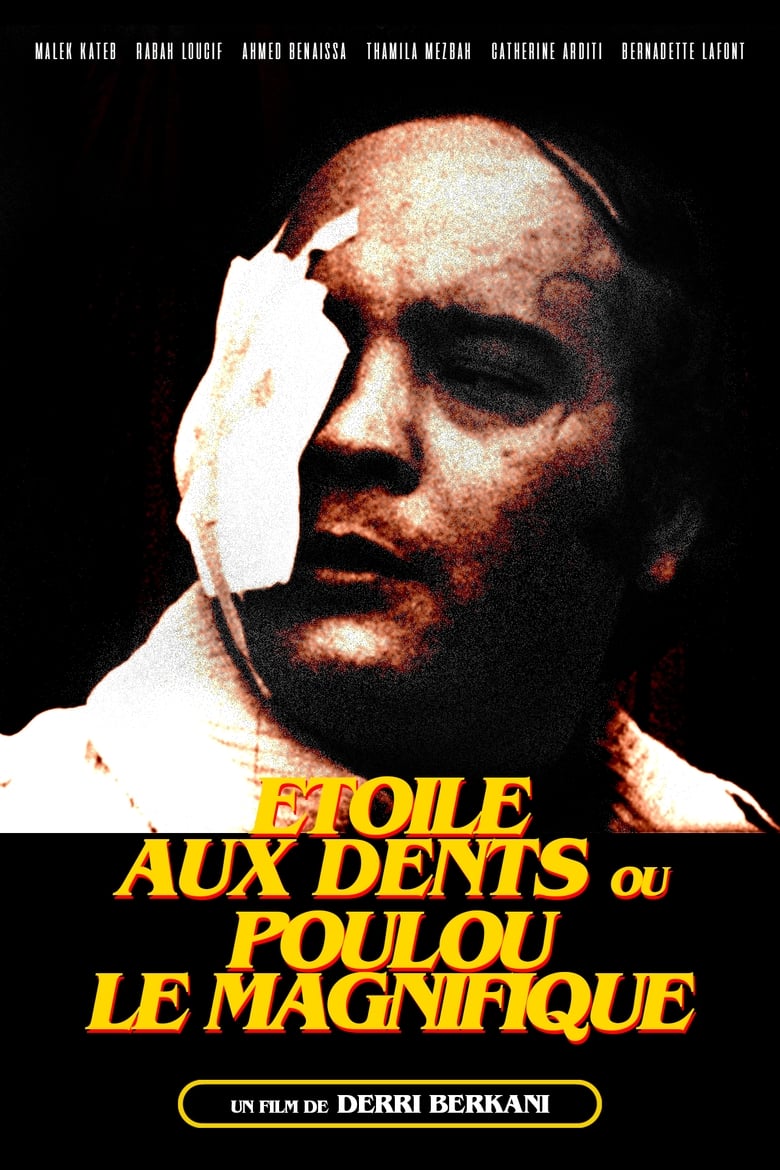
Étoile aux dents ou Poulou le magnifique
In the 70s, in the Goutte d'or district, three friends of Algerian origin: Poulou, a failed boxer, Amar, the clumsiest of thieves, and Jibé, a public writer for illiterate compatriots whose lives he knows in detail. As he betrays none of their secrets, he enjoys great prestige in the bistros where he works. The three of them lead a casual life, raising money by illicit means. It's only when Poulou and Amar leave that Jibé understands his isolation and marginalization. The images as well as the sounds help to reinforce the feeling that Paris is a city where he is both at home and a terrible stranger.
Rating:
10.0/10
Votes:
1
Year:
1971
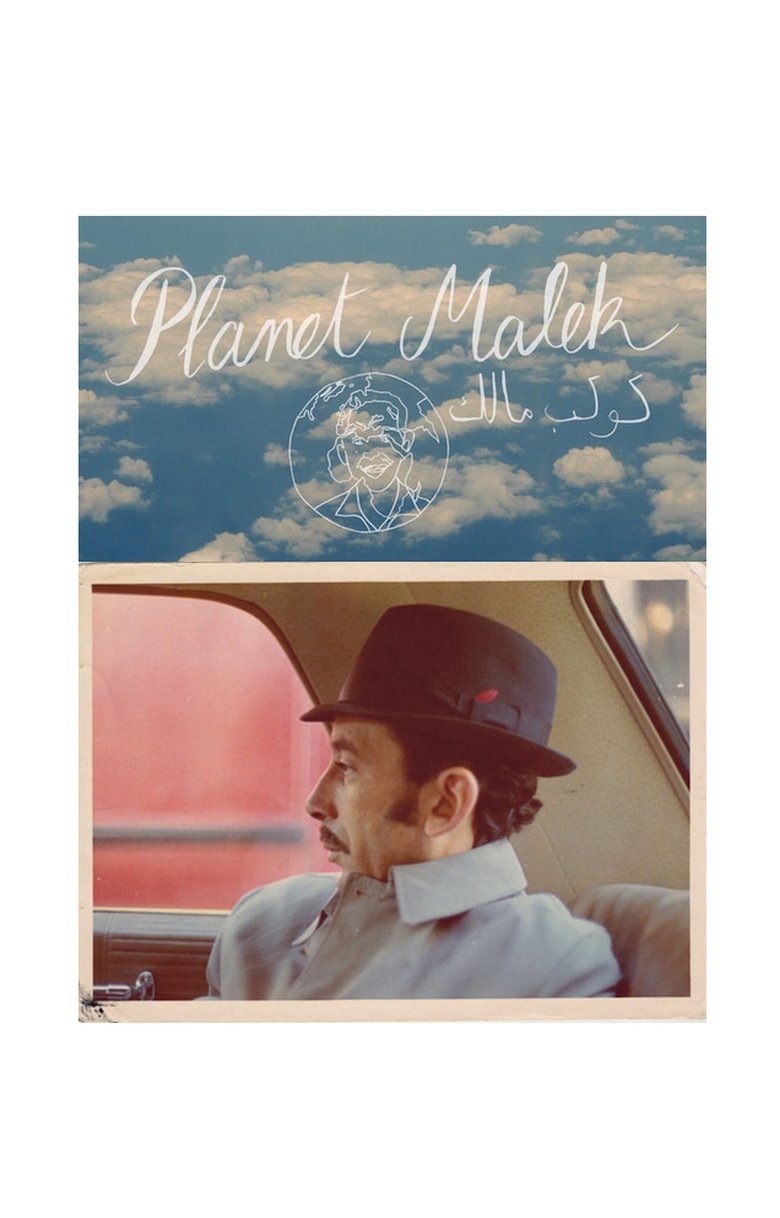
Planet Malek
Ahmed Malek’s name might have been forgotten by his fellow Algerians but his timeless tunes certainly haven’t. Called the Ennio Morricone of Algiers, he composed music for more than 200 movies, amongst which the most famous films of the Algerian New Wave in the 70s and the 80s can be found. Paloma Colombe, a DJ, digger and documentary director, went to Algiers to meet his daughter, friends and former coworkers. Images of the city by night offer a perfect background to Ahmed Malek’s music. Globetrotter, pioneer of electronic music and of the concept of the home studio, he created a unique sound that truly goes beyond genres and countries.
Rating:
10.0/10
Votes:
1
Year:
2019

Entretiens avec Abdelkrim Baba Aissa
In 2024, Abdelkrim Baba Aissa, aged 75, engages in a series of filmed interviews with Algerian journalist Thoria Smati. They address the chronology of the rich and committed career of this self-taught Algerian actor, director, producer and screenwriter, who made his debut on Algerian television as an assistant director then at ONCIC as a director in the years 70.
Rating:
10.0/10
Votes:
1
Year:
2024

M'hamed Issiakhem
"A country without artists is a dead country... I hope we are alive..." It is in this film by Fawzi Sahraoui produced by the RTA in 1985 and filmed a few months before the painter M'hamed Issiakhem 'turns off this sentence is spoken. A very interesting docu-fiction in which Issiakhem delivers himself with finesse, passion and generosity.
Rating:
10.0/10
Votes:
1
Year:
1985

Poussière de Juillet
“Poussières de Juillet”, produced in 1967 by Hachemi El-Chérif, is taken from a poem by Kateb Yacine. "We made a film on the return of the ashes of Emir Abdelkader, to Algeria. It was the opportunity to make a film on the ancestors with M'hamed Issiakhem. He designed glass plates on the basis of my texts. Then we had actors collaborate. It was a film which cost us a total of 300 dinars, proof that we could do work for television without too much money. We won two first international prizes at the Belgrade festival. We left the original of the film with the Egyptians in Alexandria and they lost it. We kept a copy but over time I wonder what happened to it, because there is no not even had a screening, they say it still exists, but I don't know in what state." Kateb Yacine, July 28, 1986, interview with Arlette Casas.
Rating:
10.0/10
Votes:
1
Year:
1967

Rue des Figuiers
An ensemble piece set in a North African neighbourhood in Toulon.
Rating:
10.0/10
Votes:
1
Year:
2005

L'Histoire Du Film "La Bataille D'Alger"
More than fifty years after the release of the film “The Battle of Algiers” in theaters in June 1966, director Salim Aggar found, after a search which lasted more than a year and a half, the actors, extras and technicians who worked on the film directed by Gillo Pentecorvo and produced by Yacef Saadi. In this documentary full of anecdotes and stories about the filming of the film, the director found the actress who played the role of Hassiba Ben Bouali, the young 17-year-old actress who played Bouhamidi's bride but especially certain figures important parts of the film who were barely 10 years old at the time of filming and who no one will recognize today. Beyond the important historical aspect of the film, the documentary focused mainly on the social, cinematographic and cultural aspect of the film and its impact on a generation which had just regained independence.
Rating:
10.0/10
Votes:
1
Year:
2018
If current server doesn't work please try other servers beside.